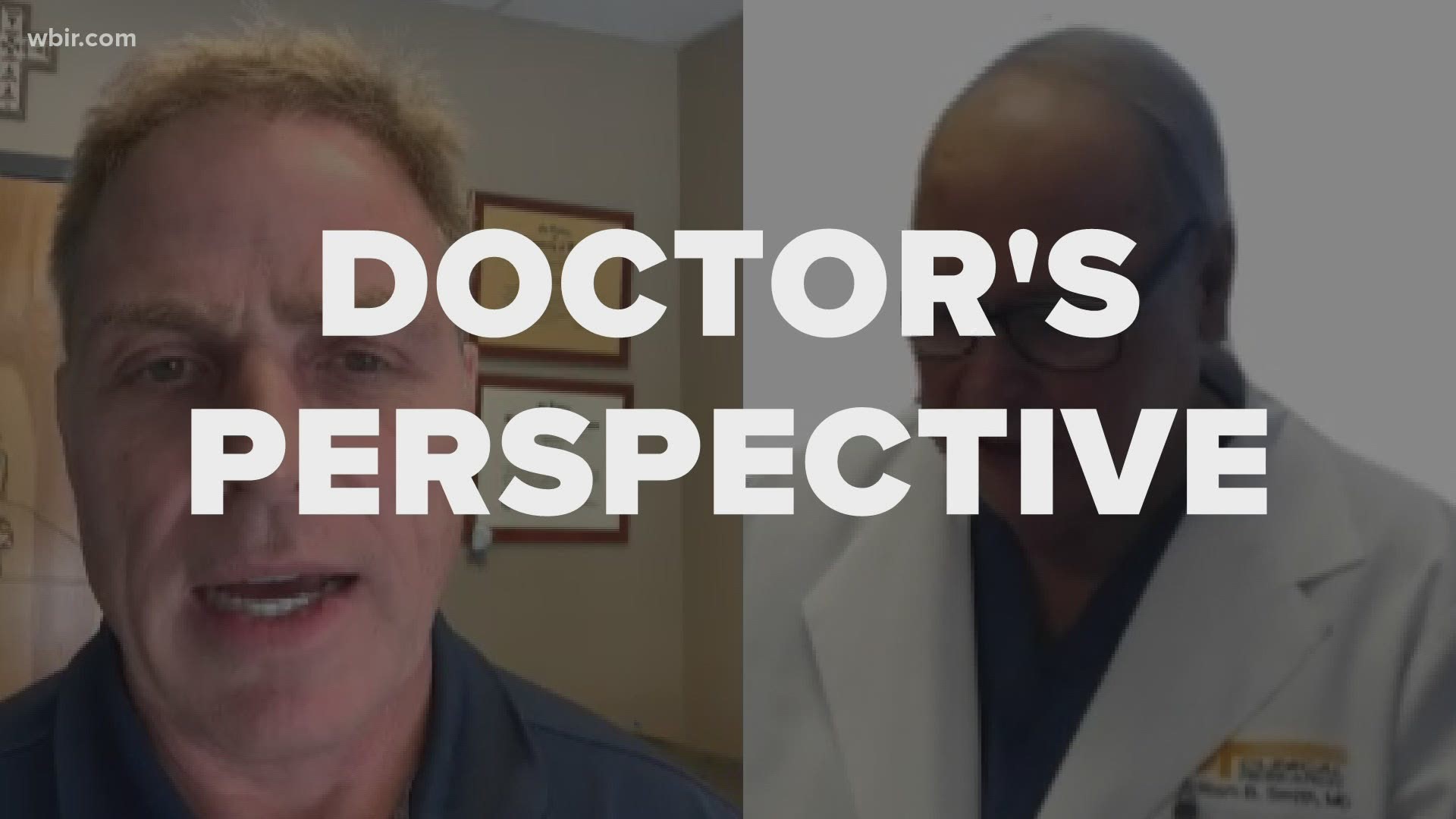KNOXVILLE, Tenn. — The Tennessee Department of Health will end all vaccine outreach for adolescents and stop all vaccine events on school property, according to internal documents and emails first reported by the Tennessean.
Internal documents detail the agency’s moves to end notices for subsequent doses of the COVID-19 and HPV vaccines.
According to Dr. Michelle Fiscus, Tennessee’s former top vaccine official who was suddenly fired on Monday, the move included stopping all communication about vaccinations for minors.
The Knox County Health Department is not subject to the new TDH policy, as state law requires regional departments in the largest metropolitan areas to operate largely independent from the state. The top six counties, including Knox and Hamilton counties, oversee their own health departments.
However, the health departments of the other 89 rural counties in Tennessee operate under the direct supervision of the Tennessee Department of Health.


Physicians in East Tennessee were shocked by the state health department's decision.
"I was stunned and confused," said Dr. Mike Green with Trinity Medical.
"I thought that it was not a very wise thing to do," said Dr. Bill Smith, the CEO of the Alliance for Multispecialty Research in Knoxville -- which led COVID-19 vaccine clinical trials through the Volunteer Research Group.
The areas of concern span much farther than just the COVID-19 vaccine, though. The new TDH policy applies to all vaccines -- even common childhood vaccines such as Chicken Pox, Measles, Mumps, Polio, and even hepatitis.
Many of these diseases have not seen large outbreaks in the United States in the past several years; however, the risk may rise again if a significant number of children are coming to school unvaccinated.
"Obviously, as pediatricians and as doctors we believe strongly that vaccinations reduce harm, and they prevent bad things from happening to people," Green said.
Illnesses like chronic Hepatitis can lead to liver failure, Polio can lead to muscle paralysis, and Mumps can lead to meningitis -- a chronic swelling of the brain.
Green believes since people have not experienced these illnesses in several years, they are forgetting about the severity of them.
"People start to diminish how much of an effect they can have because they don't see it or hear about it," Green said.
"The biggest danger is a resurgence in these diseases," Smith said.
Children can be seen as super-spreaders for these types of diseases.
"When you choose not to vaccinate your kids, then when they play with my kids at the playground, now my kids are affected," Green said.
Then, it may transfer from the child to adults in the home.
"Measles in children is not such a horrible disease, but in adults, it can be devastating with long term effects," Smith said, "It's even more severe, so to risk an increase in measles, mumps and meningitis, to me appears very short-sighted and a real risk to public health."
Both physicians encourage people to keep other families in mind when making the decision whether or not to vaccinate your children.
"We have to live as a community and think about how our decisions affect other people," Green said.
As the Tennessee Health Department will no longer administer outreach and reminders for kids to get vaccinated before school, a lot of the responsibility will fall on the shoulders of pediatricians and family doctors to increase their messaging and outreach.
"We already feel the pressure… I have conversations every day about it," Green said.
"The fact that we're no longer actively encouraging students to get vaccinated before returning to school represents a real step backwards," Smith said.
Vivian Shipe, a local community leader agrees.
“We can't afford to have smallpox again. We can't afford to have people with polio again,” said Shipe.
If the state’s health department won’t educate people about adolescent vaccinations, Shipe said it’s up to community members.
“Each one needs to teach one,” Shipe said.
In a statement to 10News, the Tennessee Department of Health said they are not halting their immunization program for children, and they “continue to support those outreach efforts.”
"TDH wants to remain a trustworthy source of information to help individuals, including parents, make these decisions. And being that trustworthy messenger means we are mindful of hesitancy and the intense national conversation that is affecting how many families evaluate vaccinations in general. We are simply mindful of how certain tactics could hurt that progress," the department said.
TDH did not explain precisely how eliminating messaging in schools would build trust in their department or be beneficial in its public health outreach duties to inform hesitant parents of the long-observed effectiveness and importance of childhood vaccines.

